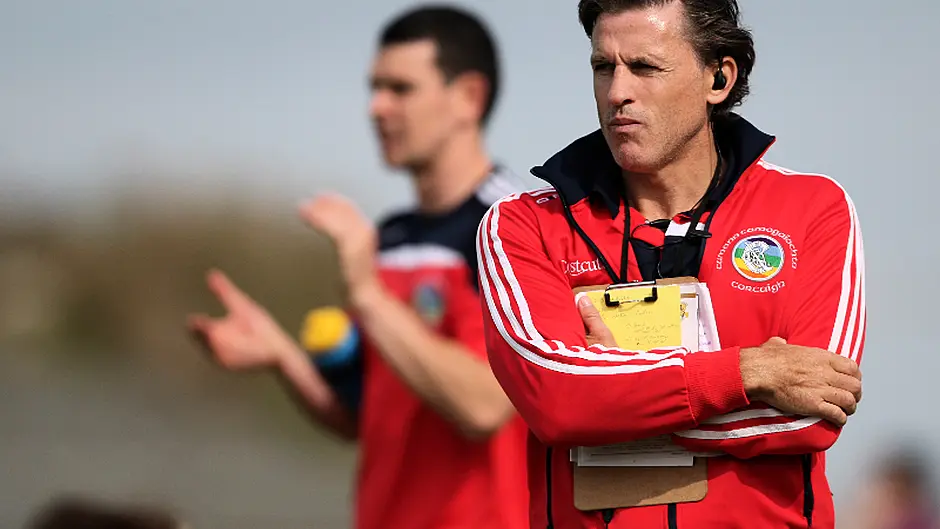Eight-time All-Star shares the key advice that helped make her a better player
BY JENNIFER O'LEARY
OVER the years, and on the various different teams I played for, coaches and managers have taught me many lessons, both in the game of camogie but also in life.
Many of the ideals they instilled in me have stuck, and I now find myself practising what they preached, as a teacher and a football and camogie coach within my school in Monaghan.
In a nutshell, they made a lasting impression on me, and for all the right reasons. Here are ten of the outstanding lessons I learned from the people who shared their knowledge and know-how with me.
Recovery is important: Overtraining is a reality in many an athlete’s life and it was no different for me at one stage in my career. I soon realised it had no personal benefits but more importantly it was no good for the team.
I was in my early 20s when Fiona O’Driscoll took us as coach with the Cork senior camogie team. At this stage we were all desperate to impress and eager to make the team. Training with club, Cork and college and the ever-growing demands the PE course had on me physically was taking its toll. Fiona was quick to raise the point about overtraining.
While you think you are succeeding in making yourself supremely fit, you are, in fact, exhausting yourself and limiting your body’s ability to get the best out of training. A rest at least two times a week instead of training seven is better than all the training put together. Muscles, bones and brains need recovery.
Visualisation works: All players go through a fruitless period in their career. A technique introduced to me by Fiona O’Driscoll was ‘visualisation’, or in other words, putting yourself into the game-time frame of mind and imagining what you were going to do individually in order to have an outstanding game.
Go to a quiet area of the field before a game or close your eyes in your room or find a spot where there are no distractions, and visualise. It works. I used it a lot for my free-taking preparation and also when trying to improve my scoring ability during open play.
Leadership: With Paudie Murray as manager, our training was taken to another level. His professional approach allowed the players to solely focus on our game instead of worrying about physios, sourcing hurleys, organisation, etc.
One request he did have for all of us was to be more vocal and take more responsibility as leaders throughout the field. He didn’t want just one voice encouraging during training. He knows it takes a collaborative effort in order for a team to gel and succeed. This definitely built confidence and spread a feeling of self-worth throughout the squad.
People felt there was a forum to speak up and listen to. It developed the team with leaders in many areas of the field.
You need to have a game plan: Cork were always a fast, skilful team over the years but I felt we weren’t utilising our strengths as well as we could. There were years where we didn’t have any clear plan. There was no Plan A or even a Plan B – we just played the game, 15 on 15, and waited the outcome.
Paudie’s main tactic for us was to play a running game and this required us to be supremely fit and tuned-in during the game. Our half forwards were acting almost as extra midfielders and this is how we organised our lineout come championship. It really suited us as a team and still does because we have the players who will work and listen and take the advice on board.
The gym is our friend! Yes, the gym is our buddy and, no, it won’t make you massive and bulky. The Wexford team of years past introduced what it meant to be physically strong in camogie. While there was no denying their skill, drive and talent, one area they powered over us was in their strength on the ball. They were ferocious in the tackle and being pushed off the ball used to be a regular occurrence.
The gym has definitely improved players’ overall fitness but especially in the area of strength and power. Core strength and stability has become a key area to work on also. My injuries or niggles, especially in my back, reduced dramatically and a big factor in all of this was my gym work. It adds definition and tone which also positively enhances your physique.
Between the years of 2012 to present, the crucial need for gym work was introduced to the Cork camogie team. Now it isn’t a choice, it’s a must.
Go hard or go home: My first introduction to really hard training and commitment was when I went to college camogie training in UL under the management of Tom Hennessy, TJ, Clem Smith and Seán Óg, to name a few.
I recall arriving to the mucky Maguire’s field on college campus – in other words, a mud bath – at 7am in the morning and trained before attending college at 9am. I can remember the intensity and the tempo of the sessions. It was immense. We endured many uphill sprints and cruel stick sessions. It definitely changed my entire mindset and application to training. Following this experience during college, if I left any training feeling energetic or unworked, it would annoy me. It taught me to push myself as an individual and as a group push the team. Leave everything on the pitch – that’s what you should be there to do.
Every ball counts: Fiona O’Driscoll intensified the focus on fighting for every ball in her coaching sessions. She was fantastic at reinforcing the need to be excellent at the basics, the crucial building blocks of a good player. We regularly practised hooking and blocking, ground flicks and worked relentlessly to retain or regain possession of the ball in many of our training sessions.
Personally, I feel there is nothing more satisfying than blocking a ball but even better is blocking a ball that seems totally out of your reach. It shows a determination and fire in you as a player but it also gives your team a huge lift when accomplished.
There’s no ‘I’ in team: My many club trainers instilled the belief that there is no individual player that can carry a team or win a game on their own. There will be days when the entire 15 will not perform collectively or even individually, so those players who usually play a safe, consistent game, will undoubtedly step up and raise their performance for the team. When I played with Barryroe, we had many representatives on Cork teams down through the years, but it was the ordinary club girls who put in the effort that make the difference.
Camogie should be enjoyed: Growing up, playing camogie was a joy and still is to this day. I really don’t know what I would do without it. Trainers such as John Cronin, our underage coach with Cork, allowed us to really relish every training session and every match.
We had so much fun and I always remember leaving the pitch happy and light. He was always smiling and cracking jokes. Whenever any of us hit the post, he would shout ‘€10 if you do it again’. I now use that line myself, although I’ve reduced the wager to five! Enjoyment isn’t everything, it comes down to being the only thing and that’s why I continue to play now.
Positivity reigns: Matthew Twomey, a selector and trainer with our Cork senior team in 2014, was a massive reason why we won the All-Ireland that year. He had such a brilliant, positive influence on the team.
He brought back belief to Cork camogie when we had lost it so many years before through the mountain of losses. His encouragement and regular words in our ears changed our thought process and helped us believe we would achieve big things, as we did.
Through him, I definitely think my mindset was so much more positive than it had ever been. It really does play a major part in your game. It improved mine more than I realised. Your head has to be right and you have to repeatedly listen to the positives others say.










